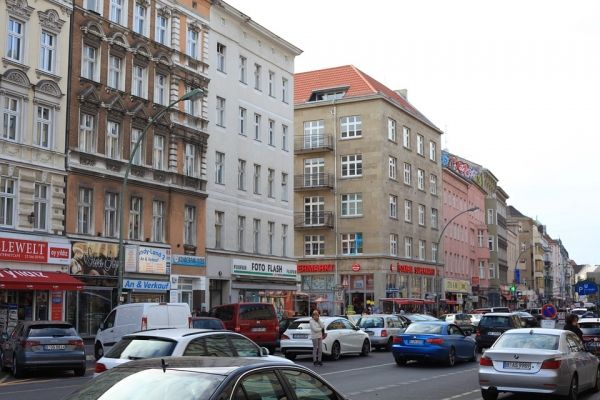For two decades, environmentalist Jürgen Resch has locked horns with Germany’s mighty automobile industry, the backbone of Europe’s most powerful economy. And Resch has shown that he will do what Berlin’s top politicians won’t: hold carmakers — and German municipalities — to the letter of the law when it comes to the high levels of pollution spewed from diesel automobiles. His indispensable ally in this against-the-odds mission has been Germany’s court system.
For two decades, environmentalist Jürgen Resch has locked horns with Germany’s mighty automobile industry, the backbone of Europe’s most powerful economy. And Resch has shown that he will do what Berlin’s top politicians won’t: hold carmakers — and German municipalities — to the letter of the law when it comes to the high levels of pollution spewed from diesel automobiles. His indispensable ally in this against-the-odds mission has been Germany’s court system.
Resch, the 57-year-old co-director of a tiny German NGO called Environmental Action Germany (Deutsche Umwelt Hilfe, or DUH), dragged the problem of Germany’s urban air quality, which violates European Union norms in at least 70 cities, all the way to the country’s highest court. In February, Germany’s Federal Administrative Court issued a strongly worded, landmark ruling that even pressure from the European Union had failed to bring about: The court decreed that German cities can — and, in acutely polluted locales, must — bar older diesel vehicles from congested downtown streets. The ruling upheld bans proposed in Stuttgart and Düsseldorf, two of Germany’s smogiest cities, and set a precedent that applies across the country.
The case’s potential ramifications are profound and demonstrate the outsized clout of Resch and his organization in their David-and-Goliath battle against Germany’s world-leading automobile industry, which generates 404 billion euros in annual revenues— roughly 20 percent of Germany’s total industrial revenue — and provides nearly 800,000 jobs in Germany alone.
The ruling could well portend the finale for diesel in Germany — or at least a game-changing reduction of its fleets on German and European roads — as well as the end of diesel’s favored status in European transportation policies. At the very least, of the 15 million diesel cars on German streets and autobahns today, the pre-2009 models, which can only be upgraded to meet air pollution standards at great expense, will be banned from restricted areas. And cars that rolled off assembly lines between 2009 and 2016 will have to undergo hardware retrofits costing about 1,300 euros to 2,500 euros — $1,600 to $3,100 — per car. The total price tag for the auto industry could be between 7.6 and 14.5 billion euros.
Read more at Yale Environment 360
Photo credit: elec_trick0 via Pixabay




